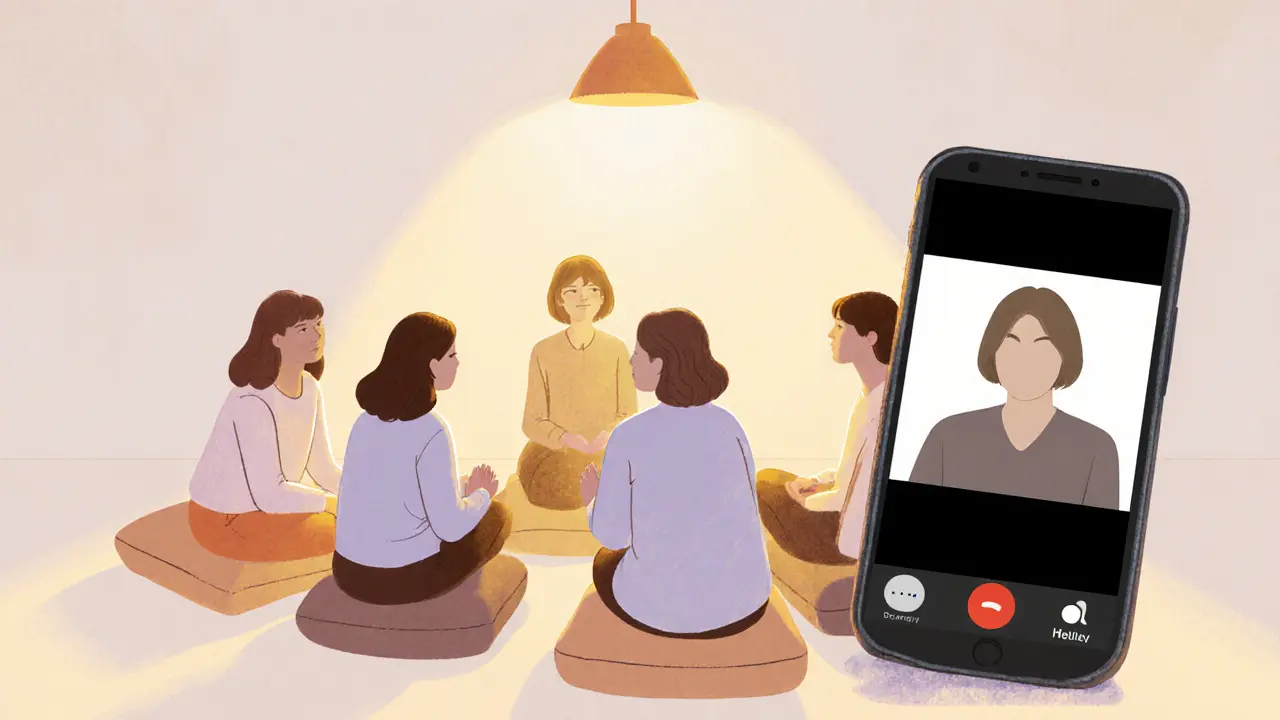When we think about Dubai's glittering skyline, we rarely consider the hidden lives of call girls in Dubai - women who provide intimate companionship for a fee - and the mental healththe emotional and psychological well‑being of an individual toll they endure.
Why the Issue Matters
People assume that a high‑end market like Dubai offers safety and wealth for everyone involved. The reality is far messier. Even in a city where luxury hotels and expensive cars dominate the picture, many sex workers face irregular income, legal uncertainty, and constant judgment. Those stressors pile up, leading to serious mental health challenges that often go unseen.
Legal Landscape and Its Impact
Dubai classifies any exchange of sexual services for money as a criminal act under the Penal Code. This means that most call girls operate behind a veil of secrecy. The fear of arrest or deportation creates a chronic state of hyper‑vigilance. According to a 2023 report by the International Labour Organization (ILO), countries with strict anti‑prostitution laws see a 40 % higher prevalence of anxiety disorders among sex workers compared with regions where sex work is de‑criminalized.
Common Mental Health Challenges
Research from the World Health Organization (WHO) and regional NGOs highlights four recurring conditions:
- Depression - Persistent low mood, loss of interest, and feelings of hopelessness. A 2022 survey of 250 respondents in the Gulf reported that 58 % screened positive for moderate to severe depression.
- Anxiety - Excessive worry about legal trouble, client safety, and financial stability. Over half of participants indicated daily panic attacks.
- Post‑Traumatic Stress Disorder (PTSD) - Exposure to violence, non‑consensual acts, or sudden raids can trigger flashbacks and nightmares.
- Substance misuse - Some turn to alcohol, prescription sedatives, or opioids to self‑medicate, which can quickly spiral into dependence.
These issues don’t exist in isolation. The combination of stigma, isolation, and constant threat multiplies their impact.
Factors That Worsen the Toll
Several interconnected elements make mental health problems especially acute for call girls in Dubai:
- Stigma - Even within the adult entertainment industry, many workers are judged as “immoral” by family and society, leading to shame and self‑isolation.
- Legal risk - The possibility of sudden police raids or immigration checks creates a background noise of fear.
- Irregular earnings - Income can swing wildly from week to week, making budgeting and future planning stressful.
- Client violence - Physical or emotional abuse is under‑reported because victims fear police involvement.
- Lack of health services - Many clinics refuse treatment to people they suspect of sex work, pushing workers toward unsanctioned providers.

Real‑World Voices (Anonymous)
Below are snippets from confidential interviews conducted by the Dubai Women’s Rights Initiative (DWRI) in early 2025. Names have been changed, and details altered to protect identities.
- "I stopped sleeping after a client threatened to expose me to my family. Night after night, I was awake, replaying the conversation over and over." - A, 28.
- "When I finally asked for a doctor, they told me to leave the clinic. I felt trapped, so I started taking prescription sleeping pills without a prescription." - B, 34.
- "The worst part isn’t the work itself; it’s the silence. No one asks how I’m feeling, and I can’t tell my sister because she would call me a disgrace." - C, 22.
These stories illustrate how the mental burden goes far beyond the immediate job duties.
Support Mechanisms That Exist
Even in a restrictive environment, a few resources have emerged:
- Online counseling platforms - Services like BetterHelp and local Arabic‑language therapists provide discreet video sessions.
- NGO safe‑space programs - The Emirates Community Outreach Center runs weekly support groups in neutral venues.
- Self‑help apps - Mindfulness apps such as Insight Timer help reduce anxiety when used consistently.
Unfortunately, these options are fragmented, often expensive, and not widely advertised to the target audience.
Recommendations for Change
To reduce the mental health toll, stakeholders can take concrete steps:
- Policy reform - De‑criminalizing consensual adult sex work would eliminate the constant legal threat and encourage workers to seek medical help without fear.
- Health service training - Sensitivity training for doctors and nurses can ensure non‑judgmental, confidential care.
- Industry‑led well‑being programs - Agencies that broker clients could fund mental‑health hotlines and regular therapy sessions.
- Community outreach - NGOs should expand multilingual support groups and partner with tele‑health providers to lower cost barriers.

Quick Checklist for Call Girls in Dubai
- Identify a trusted therapist or online counseling platform; schedule a regular session.
- Practice grounding techniques (deep breathing, 5‑4‑3‑2‑1 sensory exercise) during moments of panic.
- Keep a confidential list of emergency contacts - a friend, an NGO helpline, a medical professional.
- Track mood changes in a journal to spot patterns early.
- Know your rights: under UAE law, anyone can report abuse without risking prosecution for consensual adult work.
Prevalence Comparison
| Condition | Call Girls (%) | General Population (%) |
|---|---|---|
| Depression | 58 | 12 |
| Generalized Anxiety | 62 | 15 |
| PTSD | 31 | 4 |
| Substance misuse | 27 | 9 |
Final Thoughts
The mental health toll on call girls in Dubai isn’t a side note - it’s a core public‑health issue that demands attention. By understanding the unique stressors, listening to lived experiences, and pushing for supportive policies, the city can move toward a healthier, safer environment for everyone involved.
What are the most common mental health issues for call girls in Dubai?
Depression, anxiety, PTSD, and substance misuse are the most frequently reported conditions, with prevalence rates far exceeding those of the general population.
Why does the legal status of sex work affect mental health?
Criminalization creates constant fear of arrest, limits access to healthcare, and encourages secrecy, all of which heighten stress and prevent workers from seeking help.
Are there any confidential counseling services available?
Yes. Online platforms such as BetterHelp, regional Arabic‑language therapists, and NGO‑run support groups provide discreet options, though cost and awareness remain challenges.
How can callers protect themselves from client violence?
Establish clear boundaries, use safe‑check systems with trusted friends, and report any threats to local authorities or NGOs that specialize in sex‑worker safety.
What policy changes would help reduce the mental health burden?
De‑criminalization, mandatory health‑service training on non‑judgmental care, and industry‑funded mental‑health programs are key steps toward a healthier environment.

Tiberius Knightley
My name is Tiberius Knightley, a seasoned escort with unparalleled expertise in this thrilling industry. My passion for my profession has led me to explore various cities and cultures as I continue to provide my clients with the best experiences. In my free time, I enjoy writing about my adventures in different cities, focusing on the unique aspects of each place from an escort's perspective. My work aims to not only entertain but also provide valuable insights into the world of high-class companionship. Follow my journey as I uncover the hidden gems and fascinating stories from the cities I visit, all while sharing my expertise in the art of escorting.
view all postsWrite a comment